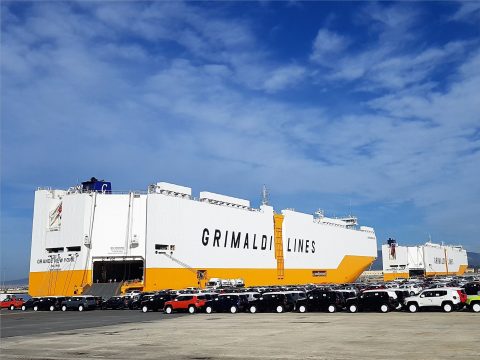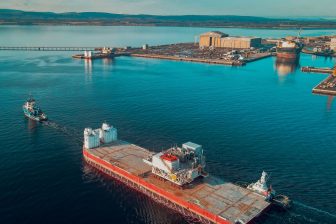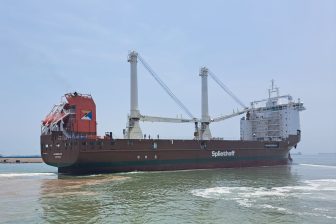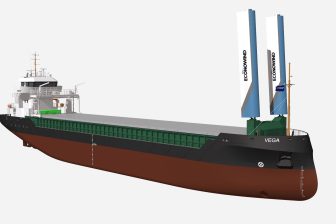
Grimaldi puts €1 Bn price tag on its latest fleet expansion
The Grimaldi Group is pushing on with the expansion of its fleet with a new order for five new Pure Car Truck Carriers (PCTC) at China Merchants Heavy Industries Jiangsu. With the option for five additional units, the company’s investment could hit €1 billion.
With a loading capacity of over 9,000 CEU, the new buildings have been designed to transport Electric Vehicles (EV). They also received the Ammonia Ready class notation by Rina, which certifies that the ships have been designed and will be built to be converted at a later date to use ammonia as marine fuel.
Moreover, the vessels will be equipped with mega lithium batteries, as well as solar panels and shore connection, which will allow them to achieve the Zero Emission in Port. The other main technical innovations of these ships are the Air Lubrication system, an Innovative Propulsion and optimised hull design, which aim to reduce the carbon footprint.
Emanuele Grimaldi, managing director of Grimaldi Group, stated, “The Grimaldi Group has been a veritable pioneer in environmental sustainability, with initiatives aimed at reducing CO2 emissions from its activities year after year. The potential dual-fuel vessels will be far more efficient than earlier designs; they will burn 50 percent less fuel than the previous generation of car carriers. We are witnessing an evolution which will bring the sector toward the zero emissions goal. The order signed today, of a new type of vessel ammonia-ready, is a challenge, particularly when the alternative fuels for the industry to decarbonise are not available at the moment. The realisation of such an innovation requires huge commitment of all parties involved but, then, this commitment turns into progress.”
The five ships ordered are expected to be delivered between 2025 and the end of 2026 and the group’s fleet will become even younger and efficient. The additional car carrier vessels will satisfy the new market requirements, and are planned to be deployed on voyages between Europe, North Africa, and the Near and Far East.



